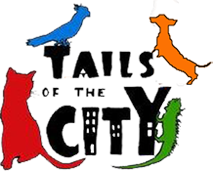?? Is your pet the cutest, scariest or silliest in his or her costume?…
Zoo, Park Animals May Benefit From Shutdown
Zoo, Park Animals May Benefit From Shutdown
As more than 800,000 federal workers across the country grapple with an uncertain financial future during the U.S. government shutdown, there is at least one group that may stand to benefit from the impasse — they’re just not human.
Animals at the federally funded National Zoo, national parks and wildlife refuges have just received an open-ended vacation from human tourist crowds.
In the short term, at least, the situation appears to be a win-win for such animals.
“We are in the process of an orderly shutdown,” Devin Murphy, spokesperson for the National Zoo told Discovery News earlier today. She explained that as of noon today, only essential staff members are in place. “All of the animals are being cared for as usual,” she assured.
Linda St. Thomas, chief spokesperson for the Smithsonian Institution, informed Discovery News that “the animals will follow their same indoor and outdoor schedules.” She is referring to the fact that, at night, many animals go into separate quarters for feeding and sleeping. They then move to roomier open-air exhibits during the day for public viewing.
The big difference is that now there is no public. As of today, all National Zoo gates — vehicle, pedestrian and bicycle — were closed and locked.
“It’s now the fall, so we weren’t in our prime season anyway,” she said. “The zoo has still been pretty busy, though. We’re usually open every day of the year except for December 25.”
Many other zoos follow similar schedules. A spokesperson at Zoo New England, for example, said that the zoo is open year-round except for Thanksgiving Day and December 25. There aren’t’ many opportunities then to study how crowds may affect the animals.
In some cases, individual animals appear to view humans as annoying intruders, but they aren’t necessarily afraid to stand their ground. Santino, a male chimp at Furuvik Zoo in Sweden, is one notable example.
Mathias Osvath of Lund University told Discovery News that “on five consecutive days, before the zoo opened, the chimpanzee gathered stones from the water and placed them in caches.” Later on each of those days, Santino was seen throwing the rocks at unsuspecting zoo visitors.
The resourceful chimp even manufactures concrete “missile” discs, made from loose materials in structures on his “chimpanzee island” home.
Antonio Moura, who conducted research while in the Department of Biological Anthropology at the University of Cambridge, observed capuchin monkeys at Serra da Capivara National Park in Brazil. Moura noticed that whenever he approached, the monkeys would move to higher ground and search for a loose stone, which they would then hit on a rock surface several times. The resulting noise, presumably, was meant to keep people like Moura away.
A new study, accepted for publication in the December issue of General and Comparative Endocrinology, suggests that stress levels of captive primates do widely vary, but not necessarily because of humans. The stress hormone cortisol, found in easily gathered hair and fecal samples, reveals chimp anxiety.
Yumi Yamanashi of Kyoto University and colleagues determined that how the chimps related to each other contributed, or not, to stress levels. For example, in one chimp group, Yamanashi and team found that “the individual with the highest hair cortisol level was one of the two individuals introduced into the group a year before the study.” In other words, he was the new chimp in town.
Stress levels were also higher in all male groups. The researchers explained, “All-male groupings are not observed in wild chimpanzees, but are often formed in captivity to solve the problem of surplus animals.”
While humans can get on the nerves of animals, interactions with their own species may be just as stressful. So long as the species groups sharing digs at zoos, parks and refuges get along, it’s likely that they will fare well during the shutdown — as long as it doesn’t lead to cutbacks in their care.




This Post Has 0 Comments